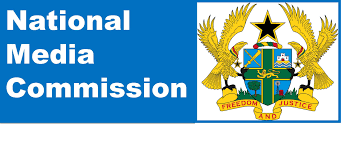Editorial
Improve security arrangement at match venues
Dear Editor,
It is sad to hear that a football fan has lost his life at a match venue.
It has thrown the football fraternity into a state of mourning.
The incident which occurred on Sunday when Nsoatreman FC played Asante Kotoko in a Premier League game highlights the lack of proper security measures at the various match venues across the country at all levels of our football.
Over the years, there have been issues of violent attacks on match officials, sports journalists, and opposition supporters by fans of home teams.
However, most of these cases are not addressed by the Ghana Football Association (GFA).
When such incidents happen, the team that is involved often get banned from playing at their home grounds, while the supporters go unpunished.
This has not yielded the needed results as we continue to see violent acts at our stadiums.
In view of the recent incident, I recommend that appropriate security measures be put in place by the GFA to protect teams, match officials, and sports journalists.
To begin with, I suggest that any team that travels to honour league matches should be provided with adequate security.
Also, certain venues in the Bono region, should be allocated a greater number of security personnel to ensure the safety of both home and travelling supporters.
The two most successful football clubs in the country, Accra Hearts of Oak and Kumasi Asante Kotoko, should also lead reforms of the league, as often seen in Europe and North Africa, where teams like Real Madrid, Barcelona, Liverpool, Chelsea, Manchester United, Al Ahly and Zamalek take the bold step in ensuring that decisions regarding the salaries of players, their welfare and security measures at match venues were not only taken for granted.
For that to happen, representatives of these two clubs at the Executive Committee of the GFA need to be vocal and stand firm with the decision they make.
Atom,
Accra
Editorial
NMC must enforceguidelines to protectviewers, especially minors

Dear Editor,
I WRITE to express my growing concern about the increasing display of adult content on some television stations in the country.
These programmes, often aired during hours when children are most likely to be watching, pose a serious threat to their moral development and general well-being.
Television remains one of the strongest influences on young people, and stations have a responsibility to ensure that their content reflects the values we seek to instil in our society.
Unfortunately, some channels appear to prioritise sensationalism and profit over public safety and decency.
Such content not only exposes children to material they are not prepared to process but also undermines parents’ efforts to guide their behaviour.
I call on the National Media Commission (NMC) and other regulatory bodies to intensify monitoring and enforce stricter guidelines to protect viewers, especially minors.
Broadcasters must be reminded of their duty to promote responsible and wholesome programming.
Our airwaves should uplift, educate, and inform — not endanger the moral fabric of the next generation.
Eugene Ampiaw,
Accra
Join our WhatsApp Channel now!
https://whatsapp.com/channel/0029VbBElzjInlqHhl1aTU27
Editorial
Balancing faith,discipline at Wesley Girls SHS
Dear Editor,
I AM writing to share my thoughts on the ongoing issue at Wesley Girls’ Senior High School, which has attracted national attention after the Deputy Attorney General released a statement in court.
The matter is about whether Muslim students are being denied the right to freely practice their religion, and whether they are being compelled to follow practices that go against their faith.
To me, this is not just a legal issue but a question of fairness and respect in our schools.
While the Constitution guarantees every student the right to practice their faith, schools also have traditions and rules that must be respected. As the saying goes, “When you go to Rome, you do what Romans do.” If a teacher is teaching, it is not right for a student to suddenly leave for prayers. That disrupts learning.
Instead, schools should provide a clear time and place for worship, so that students can honour their faith without disturbing academic work. There is time for everything; time to learn, and time to pray.
Wesley Girls SHS can continue to uphold its Methodist heritage while also respecting the rights of Muslim students.
This compromise will protect unity and ensure that our schools remain places of both discipline and inclusion.
Princess Wonovi
Accra
Join our WhatsApp Channel now!
https://whatsapp.com/channel/0029VbBElzjInlqHhl1aTU27






